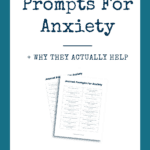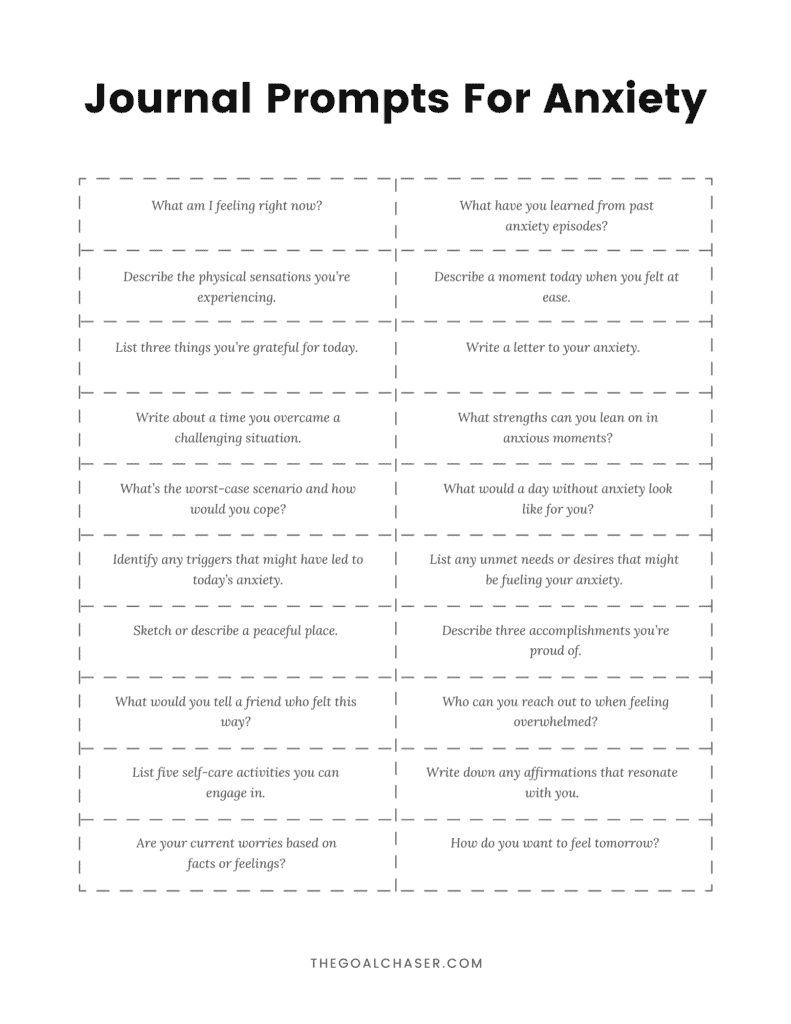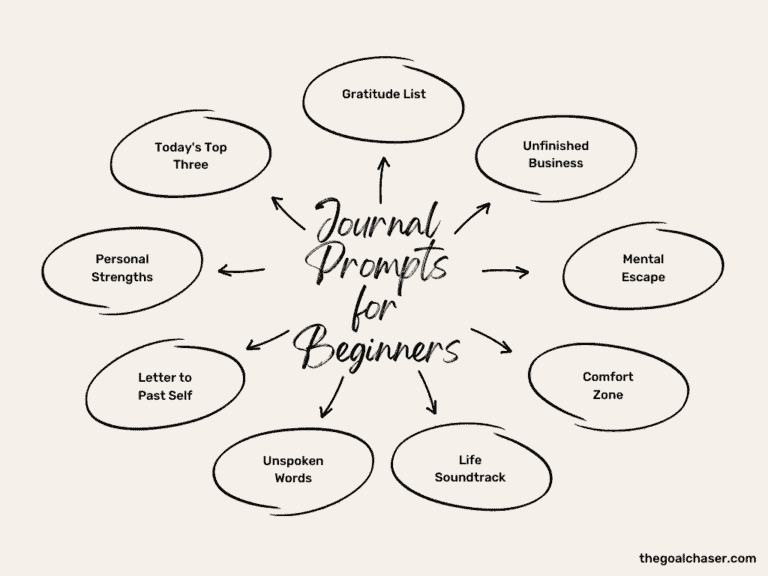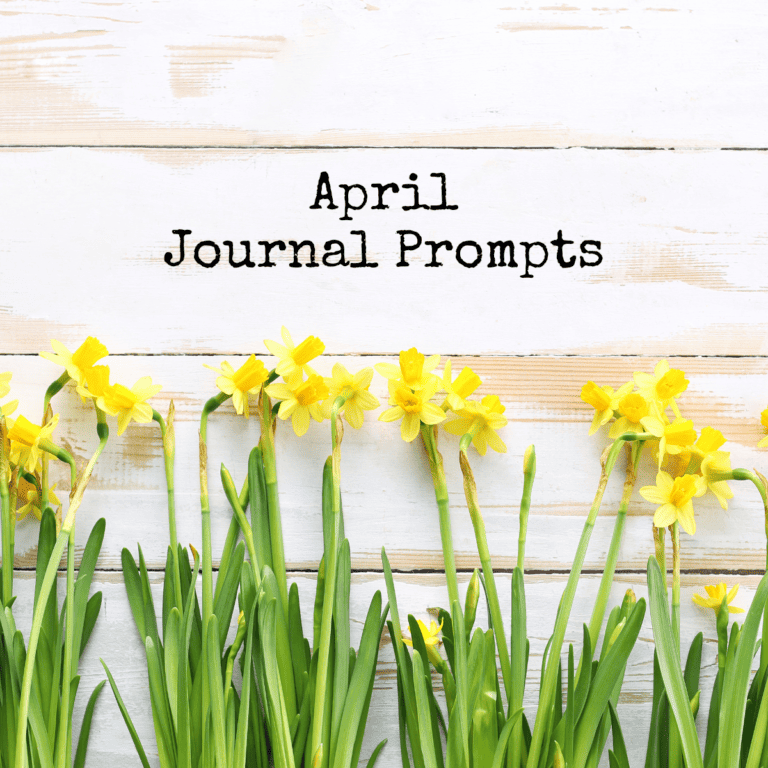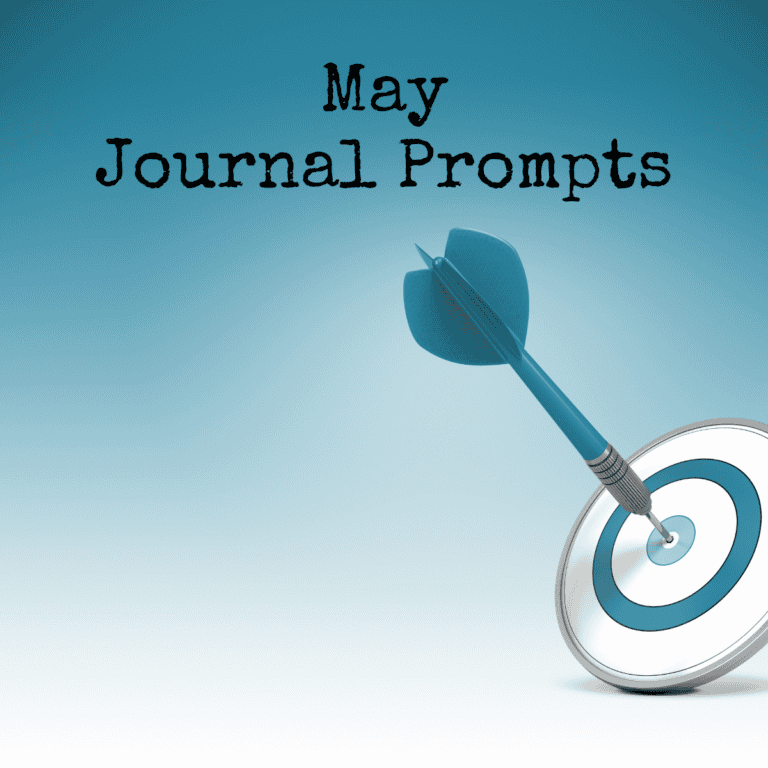40 Journal Prompts For Anxiety (+ Why They Help)
A list of downloadable journaling prompts that help when dealing with anxiety.
Journaling is a therapeutic tool that has been embraced for centuries, and when it comes to anxiety, the simple act of writing can work wonders.
Benefits of Journaling For Anxiety
Journaling provides a private, judgment-free space where we can process feelings, identify triggers, and highlight patterns that increase, and reduce, times of anxiety.
Putting pen to paper (or fingers to keys) can help with anxiety by:
- Clarifying thoughts, making them more understandable,
- Releasing emotions, providing a safe outlet for pent-up feelings,
- Grounding and focusing the mind,
- Reducing rumination and overthinking,
- Encouraging mindfulness,
- Reinforcing positivity, by creating space for gratitude and positive reflections.
Journaling also keeps track of our journey, and can offer a measure of progress over time.
Now, let’s delve into some journal prompts specifically tailored for anxiety, each paired with a rationale for how it can help.
Journal Prompts for Anxiety
- What am I feeling right now? This prompt encourages immediate emotional awareness and grounding.
- Describe the physical sensations you’re experiencing. Connecting with the body can help detach from overwhelming thoughts.
- List three things you’re grateful for today. Gratitude can shift focus from stressors to positive elements in life.
- Write about a time you overcame a challenging situation. Recalling examples of our resilience reinforces our capability to handle anxiety.
- What’s the worst-case scenario and how would you cope? Facing fears can diminish their power and promote problem-solving.
- Identify any triggers that might have led to today’s anxiety. Recognizing triggers aids in understanding and managing future reactions.
- Sketch or describe a peaceful place. Visualization of calm spaces can induce a calming effect.
- What would you tell a friend who felt this way? Adopting an external perspective often provides compassionate insights.
- List five self-care activities you can engage in. Promotes proactive coping strategies for anxious moments.
- Are your current worries based on facts or feelings? Distinguishing between the two can help in addressing irrational fears.
- What have you learned from past anxiety episodes? Reflecting on past experiences can provide insights into coping mechanisms.
- Describe a moment today when you felt at ease. Remembering calm moments can offer hope and perspective.
- Write a letter to your anxiety. Personifying anxiety can create distance, making it more manageable.
- What strengths can you lean on in anxious moments? Reinforces self-awareness and personal resilience.
- What would a day without anxiety look like for you? Visualization of positive outcomes can inspire change.
- List any unmet needs or desires that might be fueling your anxiety. Recognizing underlying causes can aid in addressing the root issues.
- Describe three accomplishments you’re proud of. Boosts self-worth and redirects focus to personal achievements.
- Who can you reach out to when feeling overwhelmed? Encourages seeking support and acknowledging one’s support system.
- Write down any affirmations that resonate with you. Affirmations can rewire negative thought patterns.
- How do you want to feel tomorrow? Sets a positive intention and goal for the upcoming day.
- What are some boundaries you can set for your own well-being? Boundaries can protect against anxiety-inducing situations.
- List tasks or worries you can delegate or let go of. Promotes a proactive approach to managing sources of stress.
- What’s a positive change you can make in your daily routine? Encourages proactive steps towards a more balanced life.
- How does your environment affect your anxiety? Highlights the impact of surroundings on mental well-being.
- What’s a new self-soothing technique you’d like to try? Promotes exploration of new coping mechanisms.
- How have your past experiences shaped your reaction to anxiety? Allows reflection on patterns and potential areas for growth.
- What are some misconceptions others might have about your anxiety? Facilitates clarity and potential communication with loved ones.
- List the sounds, sights, or smells that calm you. Identifies sensory tools available for grounding during anxiety spikes.
- Write a note of forgiveness to yourself. Promotes self-compassion, a crucial aspect of anxiety management.
- What do you want to remember during your next anxiety episode? Prepares the mind with a positive or calming focal point for challenging times.
- What’s a recent compliment you received? How did it make you feel? Focusing on positive feedback can counteract negative self-talk common with anxiety.
- If your anxiety was an animal, what would it be? Why? Personifying anxiety in a different form can provide a new perspective and diminish its intimidation.
- Write about a song, book, or movie that resonates with your feelings. Connecting with art can provide solace and understanding that others feel the same way.
- Describe an activity that makes you lose track of time and forget worries. Recognizing these activities can be a reminder to incorporate them into your routine for relief.
- What are three things you can control right now? This helps focus on immediate, tangible actions rather than overwhelming uncertainties.
- How do you imagine your life a year from now? Projecting into the future can provide hope and motivation to work through present challenges.
- What’s a quote that inspires you in tough times? Words of wisdom can act as anchors, providing strength and perspective.
- If you could give your younger self advice about handling anxiety, what would it be? Reflecting on growth and knowledge gained over time can be empowering.
- List five things in your immediate environment that you can see, touch, and feel. This grounding exercise can bring immediate focus to the present moment, alleviating spiraling thoughts.
- Write a letter to a future moment of anxiety, providing advice and comfort. Crafting a message of self-support prepares you mentally and emotionally for future challenges.
If you liked these journal prompts to help with anxiety, you may also like:
